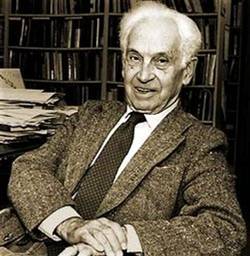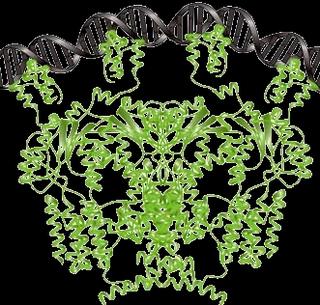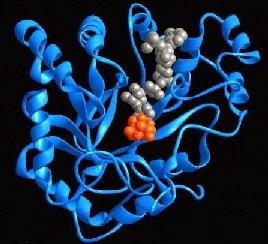He wrote this piece in the Times Education Supplement: Schools for the Enlightenment or epiphany? and then sent me this article for the Blog:
 If you follow US court cases over what can be taught in high schools, you will be treated to discourses of the sublime and the ridiculous in disturbingly equal measures. In this respect, the Kitzmiller case, the first to test the teaching of ID, is par for the course. The local school board was, by all accounts, fractious and its members not entirely forthcoming in their motives or actions. On those grounds alone, the presiding judge had good grounds for ruling against the defendants.
If you follow US court cases over what can be taught in high schools, you will be treated to discourses of the sublime and the ridiculous in disturbingly equal measures. In this respect, the Kitzmiller case, the first to test the teaching of ID, is par for the course. The local school board was, by all accounts, fractious and its members not entirely forthcoming in their motives or actions. On those grounds alone, the presiding judge had good grounds for ruling against the defendants.The larger and more interesting question was whether he would comment further on the fitness of ID for high school science classes. This was my reason for getting involved in the case, and the defence lawyers, to their credit, kept these two issues separate in the trial. As it turns out, Judge Jones devoted most of his decision to denouncing ID as a scientific project, while making some polite noises about its possible interest as ‘theology’ – not much of a consolation from a judge who admitted in a newspaper interview that his brush with religion consists in his wife dragging him to the local Lutheran Church on Sundays.
The judge’s reasoning could have been simply lifted from the plaintiffs’ playbook. The American Civil Liberties Union scored a total win, easily justifying their legal fees. However, the fact that Judge Jones, who is ostensibly intelligent and independent, would rule so categorically against intelligent design suggests that those interested in the fate of the US legal system need to initiate a far-reaching discussion about the relationship between religion and science in public life, in which I would include the classroom. This should not have been such a cut-and-dry case. A constitutional principle that originally aimed to prevent the establishment of a state-sponsored church is now being invoked to prevent the expression of views, regardless of merit, that happen to have religious origins and inspire religious support.
Regardless of Judge Jones’s appreciation or approval, virtually every major scientific world-view began with what contemporaries regarded as controversial political and religious assumptions. Galileo stands out in the Scientific Revolution because he spoke plainly and, not surprisingly, stood trial and suffered house arrest. Most others, not least Isaac Newton, concealed their motives. The project of rendering controversial political and religious assumptions ‘scientific’ involves enabling others not sharing those assumptions to find enough intrinsic merit in the positions themselves to accept or at least tolerate them. Newton was a genius because he could translate his theological insight into mathematical terms that commanded assent even from those who would not otherwise accept his theology. Of course, this scientific ‘sublimation’ of the original religious impulse typically invite new converts who take the position in radically new directions: How many people today think that they’re affirming Unitarianism when they work with Newtonian mechanics?
But sublimation is not possible without public exposure. In contrast to the 17th century, we claim to inhabit societies where people are mature enough to think for themselves. At the very least, this means that they possess ideas, not the other way round. No one seriously doubts that contemporary ID is historically connected to scientific creationism’s opposition to Darwinism. Unfortunately, the judge treated this point as a permanent strike against ID, as if to teach ID would be to unleash that entire history upon unsuspecting students. And who is being ‘supernatural’ here?!
Moreover, the US seems to have no trouble divorcing the origins from the import of scientific views when it comes to matters of race. The racist motives of biologists are not routinely investigated before deciding whether their work should be taught, despite their potential for subverting the grounds of universal civil rights. (But those so interested could ferret around recent discourse surrounding ‘genetic diversity’.) Darwin’s own magnum opus is fully titled: On the Origin of Species by Means of Natural Selection, or the Preservation of Favoured Races in the Struggle for Life, the connotations of which were happily embraced by Hunter’s Civic Biology, the high school text defended in the 1925 Scopes Trial. The ease with which the US legal system turns a blind eye to this matter reflects no more than that the nation was formally constituted with Black slaves but without an established church. The anchoring effect of a nation’s birth trauma should never be underestimated.
Let me stress that I am not calling for a witch-hunt for scientists’ racist motives, however more harmful they might be than their religious motives. Rather, I am calling for an amnesty on motives altogether. What was perhaps most disturbing about the judge’s decision was its reliance on the testimony of a professional conspiracy theorist, Barbara Forrest, who showed – quite correctly – the historical continuity between Christian fundamentalism and ID, including the Discovery Institute’s ‘Wedge Document’, a strategy for (re)turning the US to its Christian roots. When I was first shown this document during my deposition, my response was: ‘So what?’ That a particular scientific point-of-view is attached to – or even motivated by – a certain religious viewpoint backed by economic and cultural clout and dedicated to achieving specific political goals does not strike me as a problem in itself. The mere presence of a plan does not imply its success, as should now be clear from the many documents discovered in the 1950s alleging plots to turn the US into a puppet state of the Soviet Union. I mention this precedent because Forrest, a philosopher like myself, did her Ph.D. on Sidney Hook, a student of John Dewey who became just such an anti-Communist.
I have a lot of faith in the future of science and the United States. But both deserve better than what Judge Jones delivered in his verdict. The judge ignored a precedent set by McLean v. Arkansas (1982), the landmark case that banned creationism from high school science classes. The presiding judge, William Overton based his ruling on the expert testimony of the noted historian and philosopher of science, Michael Ruse. For the first time in a US court case, a definition of science was invoked that did not rely on whatever most scientists happen to think. To be sure, Ruse’s definition supported the scientific establishment but without making reference to it. At the time, Ruse was excoriated by his colleagues for lack of nuance, yet he succeeded in providing what philosophers value most: an independent standard for deciding validity. Francis Bacon’s invention of the ‘scientific method’ 400 years ago can be seen as a version of Ruse, but now acting as judge rather than witness. It was not a trivial achievement the first time round, nor was it when Ruse re-invented it. Unfortunately, this history was lost on Judge Jones, whose idea of neutrality required driving out religion from science simply because it challenged the received view of the scientific establishment.
Also, Steve will be speaking in January on ID at the following venues:
Thomas More Institute, London (Wednesday, 25 January). Contact person is Andrew Hegarty: andrew.hegarty@thomasmoreinstitute.org.uk
University of Bristol, Philosophy Department (Tuesday, 31 January). Contact person is Alexander Bird: alexander.bird@bristol.ac.uk
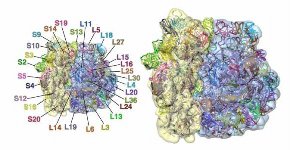
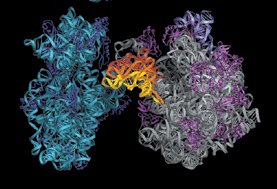






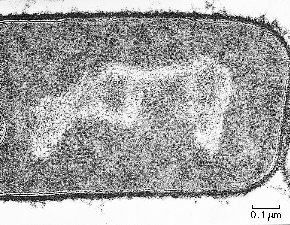
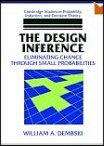





 Paul Mirecki, designer of the world's shortest course on Intelligent design and other mythologies at Kansas University (
Paul Mirecki, designer of the world's shortest course on Intelligent design and other mythologies at Kansas University (



